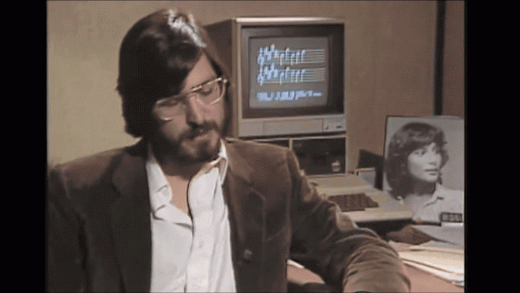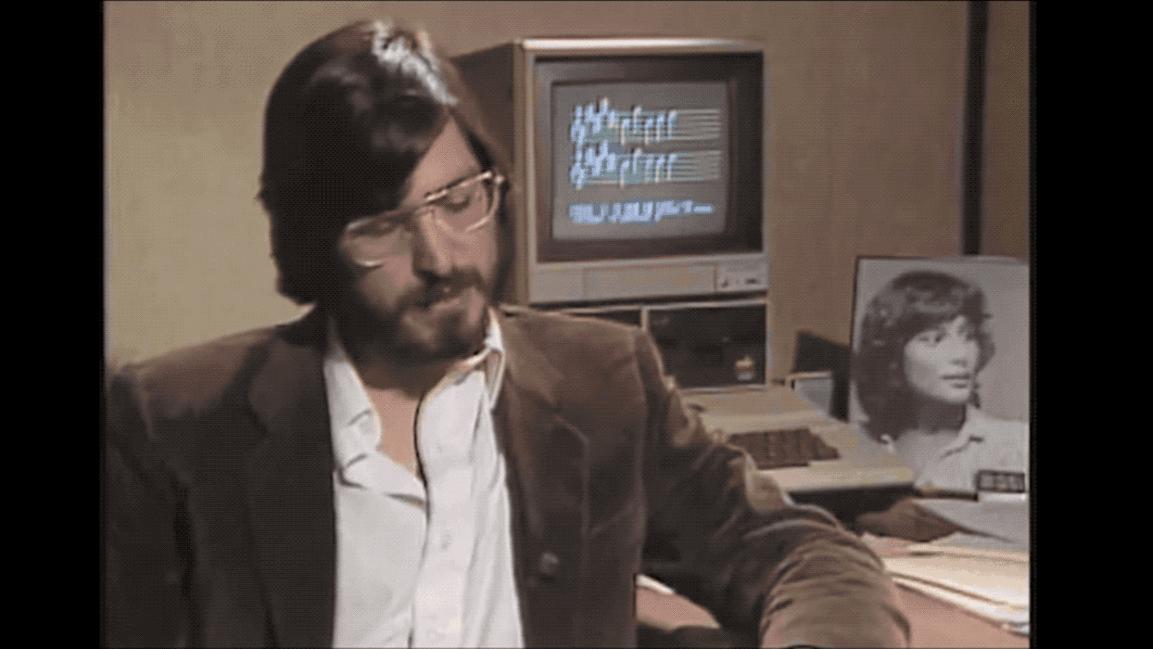Watch a 1981 video that shows Steve Jobs becoming Steve Jobs
“The interesting thing about television is that it always seems to shoot for the lowest common denominator.”
That’s a wonderfully acidic takedown, and it’s not a shocker to hear the notoriously blunt Steve Jobs flinging it. What makes it particularly noteworthy is that he’s saying it to ABC News reporter Bob Brown in February 1981, in footage never meant for public consumption. The 25-year-old Apple cofounder was snarking about Brown’s profession as the two got ready for an interview that was preserved in unedited form and eventually digitized by ABC. At the time, Apple was less than five years old, and Jobs was not yet much of a celebrity, though the company’s profile and his had been considerably raised by Apple’s blockbuster IPO on December 12, 1980.
The video is a fascinating look at Steve Jobs in the process of becoming Steve Jobs. And here it is, thanks to a YouTube account called Sir Mix-A-Lot Rare Music:
The helmet-haired Brown talks with Jobs for almost 20 minutes in the clip, apparently in Jobs’ office at Apple’s then-headquarters on Bandley Drive in Cupertino. There’s an Apple II computer on the desk along with a photo of Barbara Jasinski, a Jobs lady friend of the time. A fuzzy version of the Apple logo hangs on the wall. Because this is raw footage, you get to see the TV-segment sausage being made: At one point, Jobs asks Brown whether they’re just chatting or the official interview has begun. At the end, an unseen female producer even feeds Brown his questions so he can re-ask them from a different camera angle.
ABC’s records indicate that the interview was taped on February 18, 1981. I am reasonably confident that it was fodder for a 20/20 newsmagazine segment, which was mostly about the video game craze and aired on May 28 of that year. (I’m not positive because I haven’t actually seen it, and I’m not sure if anyone else has in the past 41 years.) The Apple II computer was a pretty spectacular gaming machine itself, but the network seems to have sought out Jobs to counterbalance its interviews with game-industry folk, such as the founders of Activision—after all, Apple’s success proved that computers in the home weren’t just about entertainment.
The oldest Steve Jobs video on YouTube seems to be a clip of him prepping for an earlier interview, apparently on San Francisco TV station KGO in 1978. In that one, he seems astounded by the idea that he might appear on television, and says that the prospect makes him feel like throwing up. By the time he sat down with Brown in 1981, he looked much the same—luxuriantly hirsute, with oversized, nerdy glasses. But he’s a far more confident presence, recognizable as the irreplaceable great communicator who’d later unveil everything from the Macintosh to the NeXT computer to the iPhone.
Jobs’ responses to some of Brown’s questions are as glib as they are because they aren’t quite extemporaneous. In a period when most consumers had yet to encounter a personal computer in person, Jobs had become adept at describing the PC’s significance in a compelling fashion, and had his patter down. He liked to call computers a bicycle for the mind—here’s Steven Sinofsky’s history of that famous simile—and also compared them to fractional-horsepower motors. He even did that in a second ABC appearance at around the same time: That one was with Nightline’s Ted Koppel and took place on April 10, 1981, after the Brown interview but before the 20/20 segment’s airdate. There are also echoes of those conversations in a Jobs appearance on The CBS Evening News for December 29, 1981, though by then he’s waxing on about people being “seduced” by computers rather than focusing on their practicality in business and education.
Watching Jobs talk about Apple so early in its history, it’s tempting to search for eerily prescient statements about where the company was going—say, a declaration that his ultimate goal was to give people a powerful personal computer they could put in a pocket by, oh, 2007. None of these 1981 videos has anything that jaw-dropping. But Jobs does outline the next decade of computing progress for Brown in a way that pretty much came true: He says that computers will have to get much more sophisticated to be easier to use, and that they could wind up costing more as a result. That happened with both the Mac and its pricier predecessor the Lisa—two groundbreaking advances on the Apple II, which were under development in early 1981, but still unannounced works-in-progress.
As the February 1981 clip winds down, Brown asks Jobs if he likes to vacation in the immediate vicinity. Jobs says it’s been a long time since he vacationed anywhere, then muses, “That’s how I measure whether I’m successful . . . whether I can take off for three months—so far, I’m not successful.” That sounds like humblebragging. But I hope that at some point over the next 30 years, he stopped using the length of his vacations as a benchmark of what he had accomplished.
Fast Company , Read Full Story
(38)



